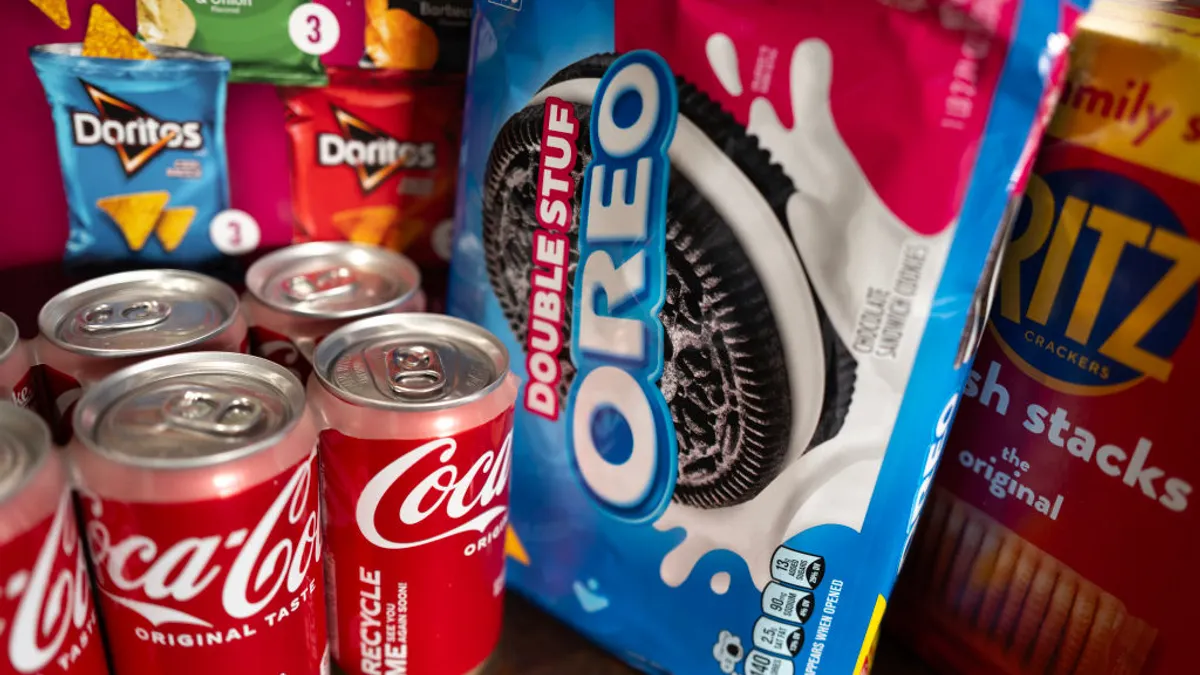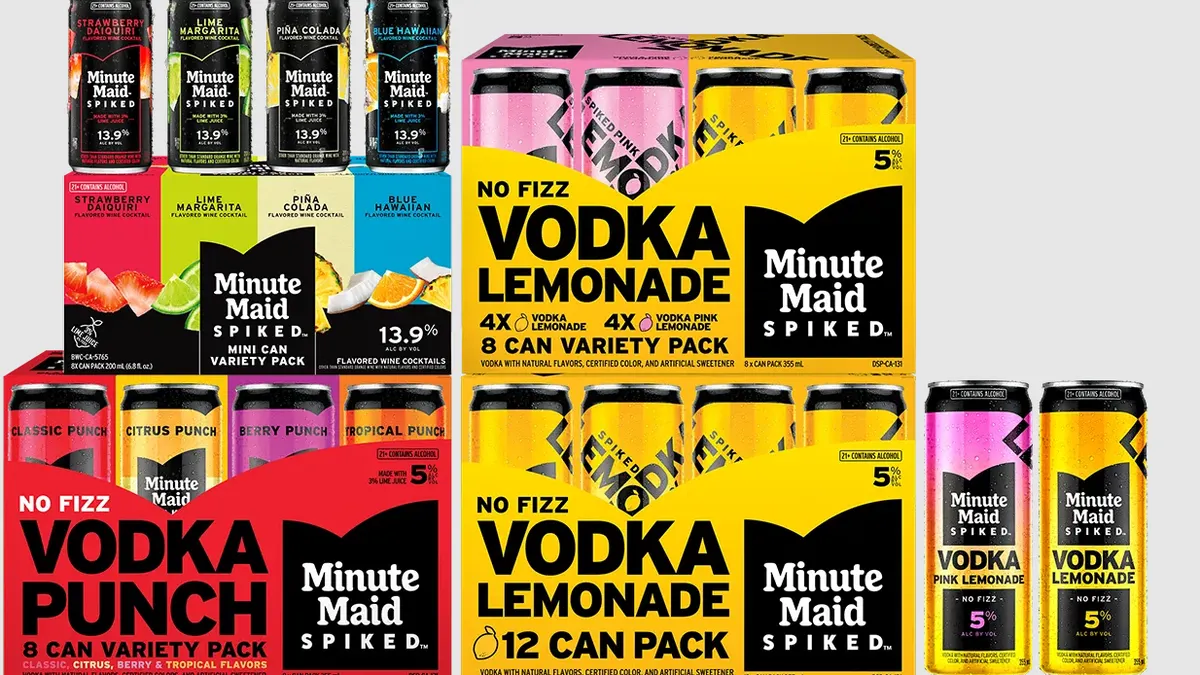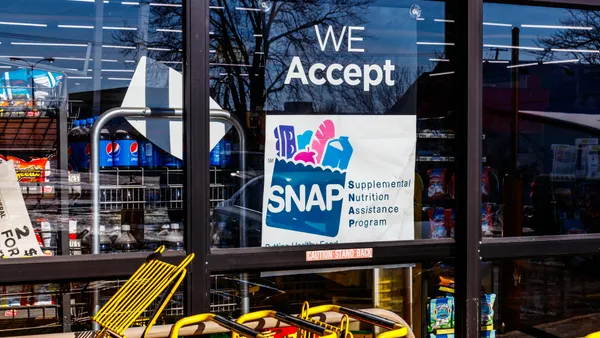Dive Brief:
- Ultra-processed foods such as salty snacks or frozen meals make up more than half of the calories in American diets, though consumption has decreased slightly compared to previous years, according to a first-of-its-kind report from the Centers for Disease Control and Prevention.
- U.S. adults on average received 53% of their daily calories from ultra-processed foods between 2021 and 2023, the CDC found, down from 56% between 2017 and 2018. For children, ultra-processed foods made up 62% of calories on average, a decrease from 66%.
- Burgers and other sandwiches made up the top source of calories from ultra-processed foods among both children and adults, followed by sweet bakery products. Sweetened beverages and savory snacks were also within the top five calorie sources for both groups.
Dive Insight:
The CDC report shines a light on ultra-processed food consumption, which Health Secretary Robert F. Kennedy Jr. and the "Make America Healthy Again" movement say is the primary driver of chronic health conditions in the U.S.
Nutrition research, including studies by the National Institutes of Health, has previously shown ultra-processed foods are the primary source of calories in U.S. diets. This is the first time the CDC has confirmed those numbers in a study of its own.
While there is no formal definition of ultra-processed foods, CDC researchers relied on the Nova classification system developed in Brazil. It ranks foods on a four-point scale from unprocessed to ultra-processed. Ultra-processed foods under that classification system typically consist of industrial formulations and unnatural additives such as colorings or emulsifiers.
Average consumption of ultra-processed foods was lowest among adults in high-income groups, the CDC report found. However, consumption among children remained the same despite income level.
Amid rising interest in regulating these foods, the FDA is looking to establish a definition of ultra-processed, which could pave the way for future restrictions. Federal regulators are also encouraging states to ban low-income consumers from using food assistance benefits to buy sweetened beverages, candies and other foods considered ultra-processed.
"Ultra-processed foods are driving our chronic disease epidemic," Kennedy said in July. "We must act boldly to eliminate the root causes of chronic illness and improve the health of our food supply."
Kennedy has also pressed food companies to voluntarily move away from artificial colors and dyes, ingredients often used in ultra-processed foods. While many food companies have announced plans to comply, some sectors note potential challenges with a wholesale shift away from these dyes, including consumer hesitancy to buy foods that are less bright.













